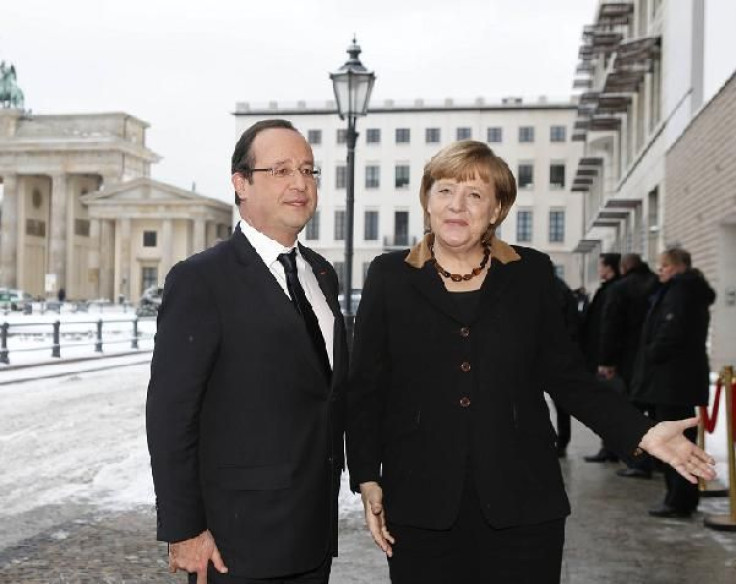German Investor Sentiment Soars To Near 3-Year High In February: ZEW

Economic expectations in Germany soared well past consensus forecasts in February, reaching the highest point in nearly three years, on optimism that the worst of the euro zone debt crisis is over. But economists warn that it is still too soon to bank on a strong and sustained recovery.
The German ZEW Economic Sentiment Index, a broad measure of investor's views on the future health of the German economy, rose to 48.2 in February from 31.5 in January and topping estimates of a reading of 35.
The financial market experts have made their peace with the weak fourth quarter of 2012," ZEW President Wolfgang Franz said in a statement.
"In their opinion the German economy faces less head winds from the euro crisis than throughout the last months. If this situation remains unchanged during the next months, German business activity may pick up speed moderately," Franz added.
The news follows comments from the Bundesbank on Monday that Germany will avoid recession and return to growth in the first quarter of this year, after posting weak gross domestic product data for the last three months of 2012. Germany's GDP slowed throughout 2012, growing by 0.5 percent in the first quarter of last year, and then by 0.3 percent in the second quarter and 0.2 percent in the third quarter. With a contraction of 0.6 percent in the final three months, the economy expanded by just 0.7 percent in 2012, compared with 3 percent in 2011.
However, the news is not all positive. February’s surge was entirely driven by expectations while current activity remains muted, dropping to 5.2 from 7.1 in December -- a five-month low. It points to sluggish growth in economic activity in the short term.
“We consider that Germany and the euro area are in a situation of re-adjusting expectations and activity from the weakness at end-2012,” said Michel Martinez, an economist at Societe Generale, in a note to clients. “The recovery in expectations may already have overshot if hard data disappoint in the coming weeks.”
Jennifer McKeown, an economist at Capital Economics, said the ZEW survey result "adds to the positive signs for the economy in the early part of this year" but cautioned that the ZEW has not been well correlated with GDP growth in the past. When the ZEW indicator surpassed its current level back in 2002 and 2004, GDP was broadly stagnant.
She said that the recent improvement in investor sentiment might relate partly to the European Central Bank’s hints of further policy support and signs of progress in the euro zone’s periphery -- including the Irish bank debt deal.
“With ECB President Mario Draghi’s words yet to be followed up with actions and political risks in Italy growing, we fear that investor sentiment might weaken again before long,” she added. “For now, we maintain our forecast that the economy will shrink by around 0.5 percent in 2013 as a whole as continued weakness elsewhere in the euro zone constrains German exports and consumers remain cautious.”
© Copyright IBTimes 2024. All rights reserved.












